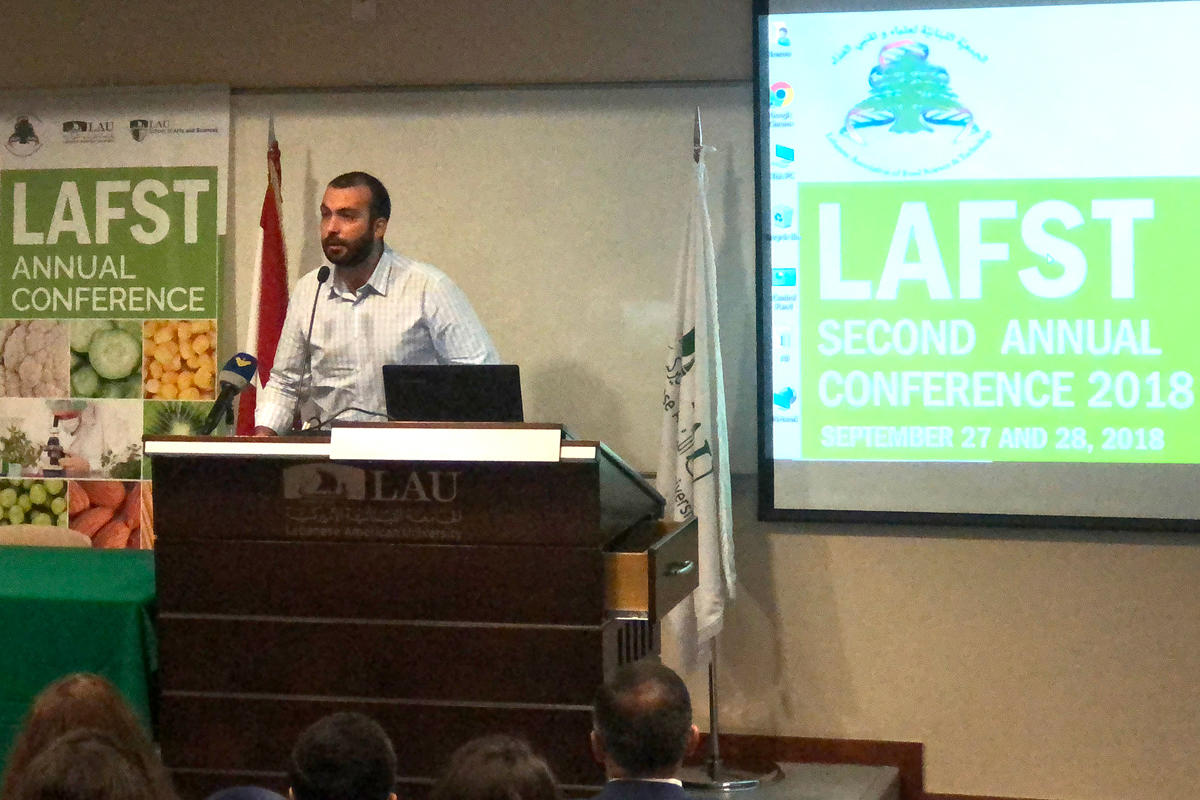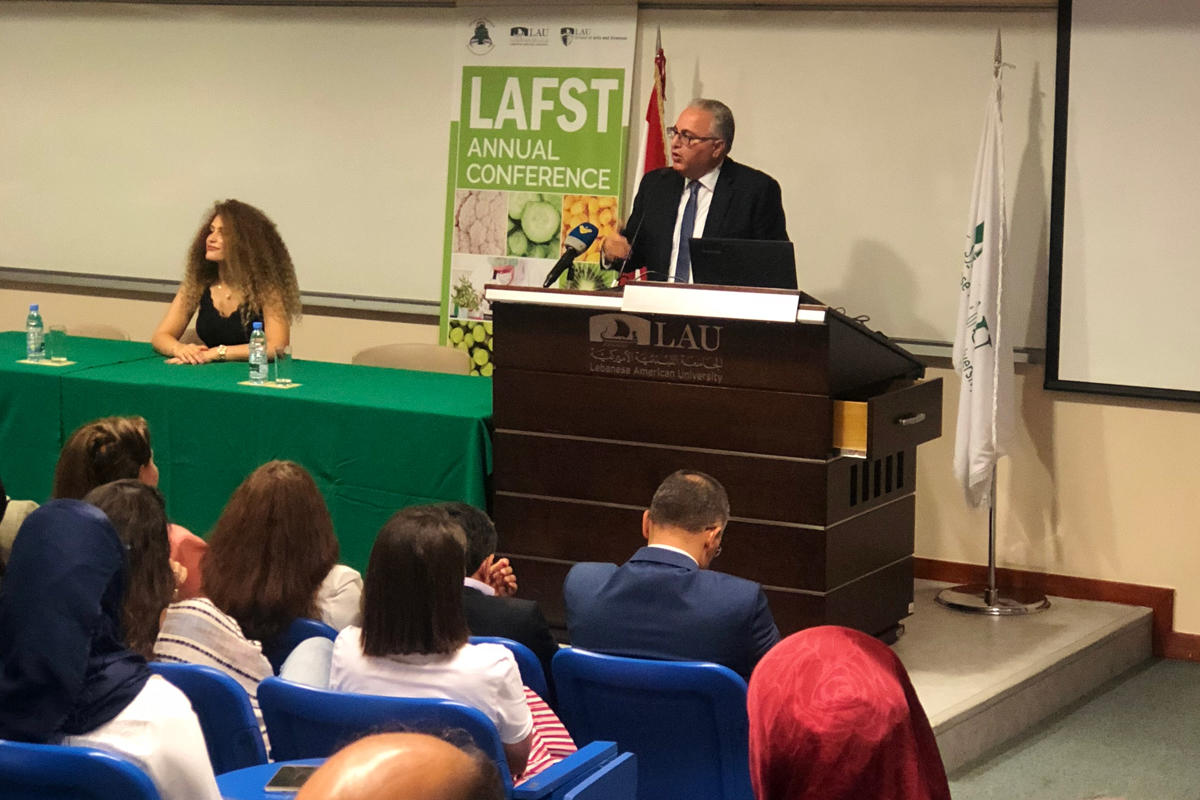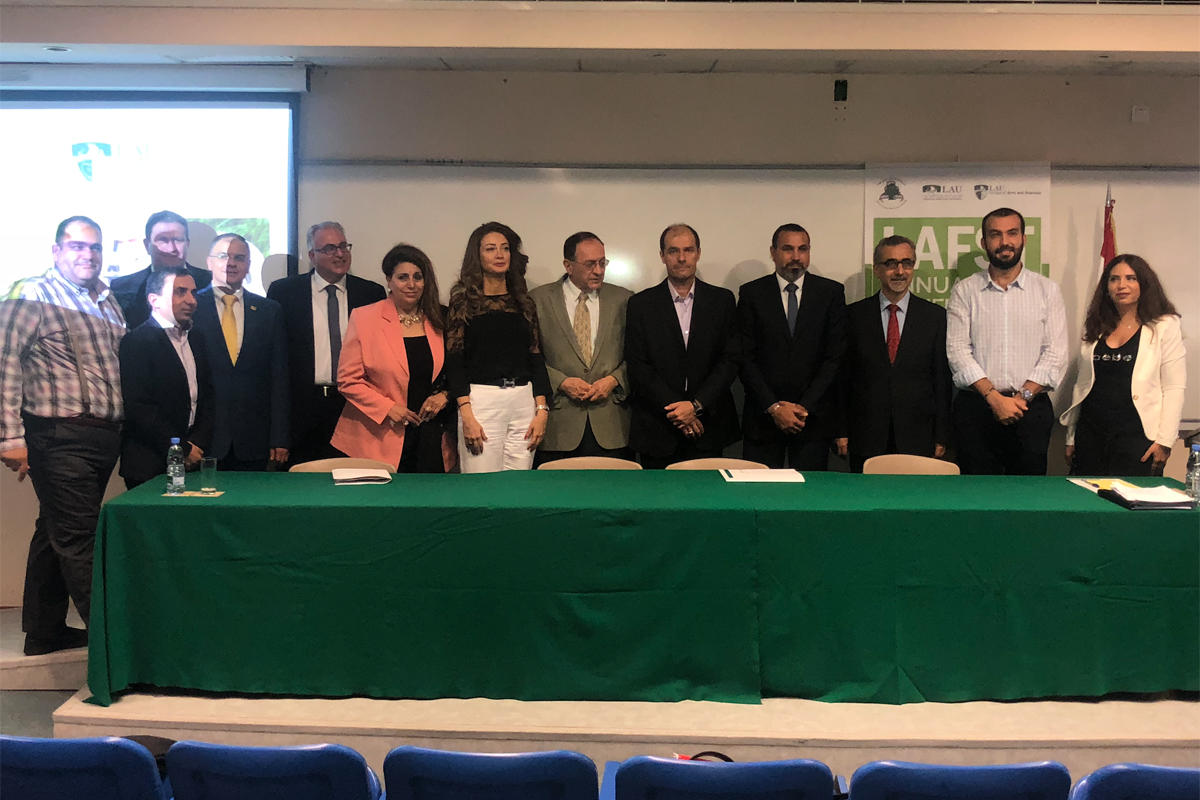How Safe is Your Food?
Nutrition Program hosts the LAFST conference for the second consecutive time to discuss the latest food science research findings.
Lebanon may be the breadbasket of the Middle East, but the safety of our crops and food products is being called into question because of pollution and poor national monitoring programs and policies.
This was a major topic at the second-annual Lebanese Association for Food Scientists and Technologists (LAFST) conference on Beirut campus hosted by LAU’s Nutrition Program.
The two-day conference, which took place in late September, was attended by representatives of the minister of industry, the Syndicate of the Lebanese Food Industrialists (SLFI), members of the food production and service sectors, and NGO personnel, in addition to students and professors from 10 universities across Lebanon.
For years, Lebanon has been grappling with a waste-management crisis, environmental pollution, and food safety issues. There has been much public backlash in recent years, and many are worried about the effects of the various crises on public health.
In his opening speech at the LAFST conference, Associate Chair of the Natural Sciences Department and Associate Professor of Food Science and Safety Hussein Hassan called the conference a platform of “interactive communication to come up with solutions to the food-safety challenges that are so common in our country.”
“Water, sea and river pollution are a principal cause for toxins in food products,” said Director General of the Lebanese Agricultural Research Institute Michel Afram, a speaker at the event. “We took samples from the areas surrounding the Litani River, and there was no safe area.”
“It is well-known that the exposure to contaminants in our food supply has a role in developing several diseases. These contaminants can originate from the farming, agriculture, distribution, processing and consumption stages,” agreed Dr. Hassan, noting that faculty members in the nutrition and chemistry programs at LAU have recently conducted a number of research studies on hazards, such as mycotoxins, heavy metals, and heavy metals in products, and reported alarming levels.
He also noted that food safety is directly related to pollution. “When we do not handle our garbage properly, hazards are released into our water and food supply, negatively affecting our health in the short and long terms,” he said. “Now there is talk of bringing in incinerators to burn garbage, which will make the problem even worse.”
But dire as the situation may seem, there are institutions addressing it. LAU’s Nutrition Program acts as “a niche for food science and food safety research in the country,” Dr. Hassan said. Among its ongoing projects, the Nutrition Program is helping the Batloun Municipality in the Chouf to reduce apple waste and upgrade their food-safety practices at a plant that manufactures apple chips in the town.
For his part, LAFST President Atef Idriss linked the sustainability and safety of Lebanon’s food production to civil peace and socio-economic growth. He reiterated the call for more cooperation between the public and private sectors, academia, as well as civil society “in order to consolidate cooperation and scientific research to pave the way to resolving the issues of pollution.”
Mounir Bissat, SLFI general secretary, underlined the importance of promoting food development and food innovation. He also called for the support of both the scientific and academic communities through workshops and consultancy.
On this, Dr. Hassan described LAU as a “pioneer in the field of nutrition and food science research,” adding, “we are always available to help food industries.”


